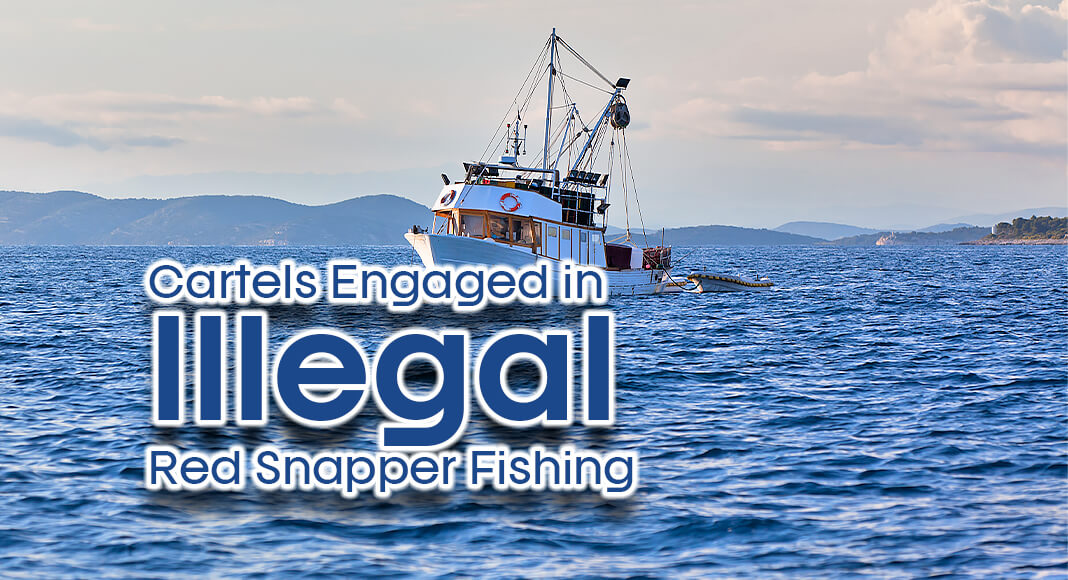
Texas Border Business
WASHINGTON, D.C. – As the Coast Guard continues to interdict cartel-backed fish poachers in federal waters, U.S. Senate Commerce Committee Ranking Member Ted Cruz (R-Texas), Sen. Tommy Tuberville (R-Ala.), and Sen. Katie Britt (R-Ala.) took action this week to target illegally caught red snapper imports. The Illegal Red Snapper Enforcement Act would require the National Institute of Standards and Technology (NIST) and the National Oceanic and Atmospheric Administration (NOAA) to develop a standard methodology for identifying the country of origin of red snapper imported into the United States.
Technology exists to chemically test and find the geographic origin of many foods, but not for red snapper. The legislation would develop a field test kit the Coast Guard could use to accurately ascertain whether fish were caught in Mexico or U.S. waters, thus allowing federal and state law enforcement officers to identify the origin of the fish and confiscate illegally caught red snapper before it is imported back into the U.S.
Upon introduction, Sen. Cruz said:
“Cartel-backed criminal entities are poaching red snapper in American waters and importing it for unwitting consumers to buy, while the profits help fund other illicit activities like drug smuggling and human trafficking. We can crack down on illegal fishing by dangerous criminal gangs with new technology that can identify the geographic origin of red snapper. I am glad to join my colleagues, Senators Tuberville and Britt, in introducing this common-sense legislation and I am hopeful our Illegal Red Snapper Enforcement Act will quickly become law to protect the livelihoods of Texas fishermen.”
Sen. Tuberville said:
“Alabama lands 34 percent of all recreationally caught Red Snapper in the Gulf. Unfortunately, our domestic Red Snapper industry is being undermined by Mexican fishermen who are illegally catching these fish in the Gulf, smuggling them into Mexico, and then reselling the same fish back to Americans. In addition to taking business away from Alabamian fisherman, many of the profits from these illegal fishing operations are funding the cartels. I’m proud to join Senator Cruz in introducing the Illegal Red Snapper Enforcement Act to stop illegal Red Snapper from flooding our markets and bankrupting our great fishermen.”
Sen. Britt added:
“I will always fight to protect our incredible U.S. fishermen and food producers. Red snapper is a core component of Coastal Alabama’s economy. As I continue to fight to empower the State of Alabama to manage our own reef fisheries, it’s also vital to combat malicious, illegal activity by cartel-backed poachers who are endangering the livelihoods of hardworking Americans and encroaching on our territorial sovereignty. I raised this issue directly to the Mexican government last year, and I’m proud to now join my colleagues in bringing forward this commonsense legislation to ensure fairness for U.S. fishermen and families.”
Read the full text of this legislation HERE.
Background:
Mexican fishermen cross the maritime border between Texas and Mexico on small boats called “lanchas” to illegally catch red snapper in U.S. waters and return to Mexico. The fish are sold in Mexico or mixed in with legally-caught red snapper then exported back into the United States across land borders. Red snapper is one of the most well-managed and profitable fish in the Gulf of Mexico, but illegal fishing by Mexican lanchas puts law-abiding U.S. fishermen and seafood producers at a competitive disadvantage. Illegal, Unreported, and Unregulated (IUU) fishing activities violate both national and international fishing regulations.
As a recent article from the Laredo Morning Times highlights:
“The demand for snapper is staggering, and so are numbers like these. Last week, U.S. Coast Guard crews out of Corpus Christi and South Padre Island intercepted three boats illegally fishing in federal waters and seized 2,160 pounds of red snapper, as well as the men’s fishing gear and long aluminum poles known as high flyers. Another 1,300 pounds was seized just over two weeks ago; back in December the haul was more than 2,600 pounds, roughly the same amount seized two months prior.”
Cartels engaged in drug smuggling and human trafficking also engage in the profitable illegal fishing of red snapper. The same fishing boats and fishermen who catch red snapper also smuggle drugs and humans for the cartels, and these profits support the organization.
With the help of machine learning, NIST scientists are currently able to chemically determine the geographic origin of foods, including strawberries, apples, cherries, ginseng, ginkgo, beef, honey, and rice. Using those same methodologies, these scientists believe it would be possible to determine the geographic origin of red snapper. This would allow law enforcement to have a better understanding of the networks that support illegal fishing. It would also reduce the financial incentives for the crime, since the fish could no longer be sold back into the United States. If successful, this method could be expanded to identify other IUU fish.
















